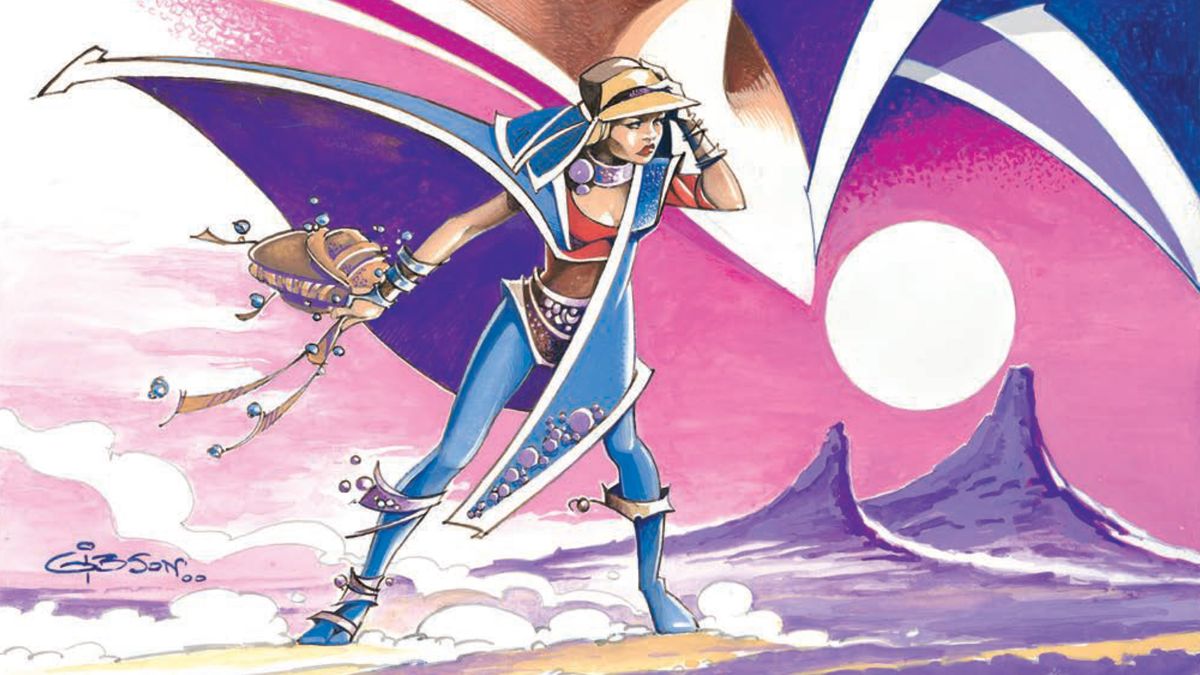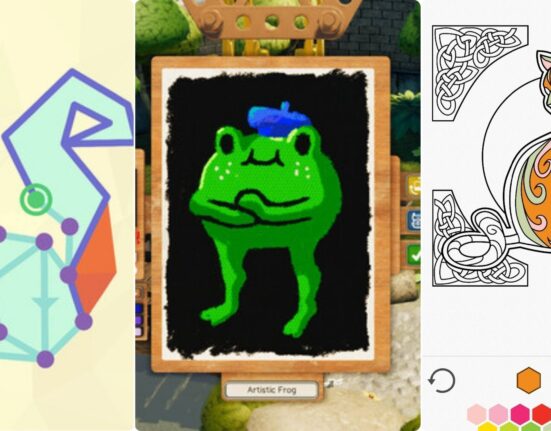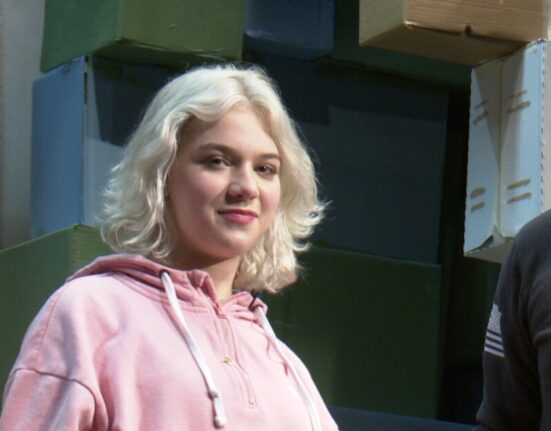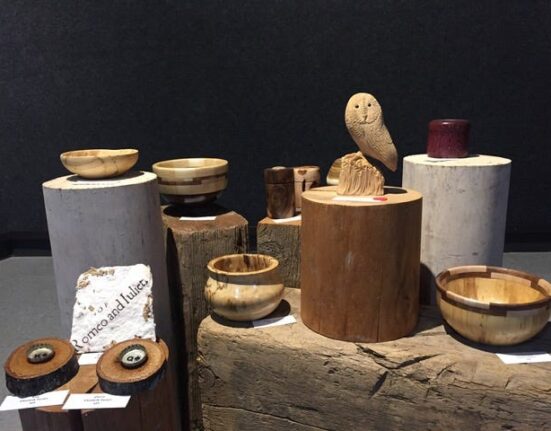Ian Gibson, one of the defining artists behind sci-fi anthology comic 2000 AD, and the co-creator of Halo Jones, has passed away at the age of 77.
“It is with great sadness, I bring the news that my father Ian Gibson passed away at 1am this morning, losing his battle with cancer,” said the artist’s son, Luke Jon Gibson, in a Facebook post on Monday.
Born in 1946, Gibson started his comics career in the world of fanzines before going pro in the early ’70s. By 1975 he was working on Death Wish for weekly adventure comic Valiant, which marked the beginning of his decades-long collaboration with Judge Dredd co-creator John Wagner.
Gibson drew many Judge Dredd strips in his career, including episodes of the very first Dredd multi-part story, ‘The Robot Wars’, which ran from 2000 AD #9-#17.
It was Gibson’s drawing of the robots in this strip that inspired Wagner to create Robo-Hunter in 1978. This sci-fi adventure followed laconic bounty hunter Sam Slade as he tracked down various errant androids. While José Ferrer drew the first episode, Gibson quickly made the series his own, his instantly-recognisable linework bringing the strip’s mixture of action and comedy beautifully to life. He would return to Robo-Hunter many times throughout his career.
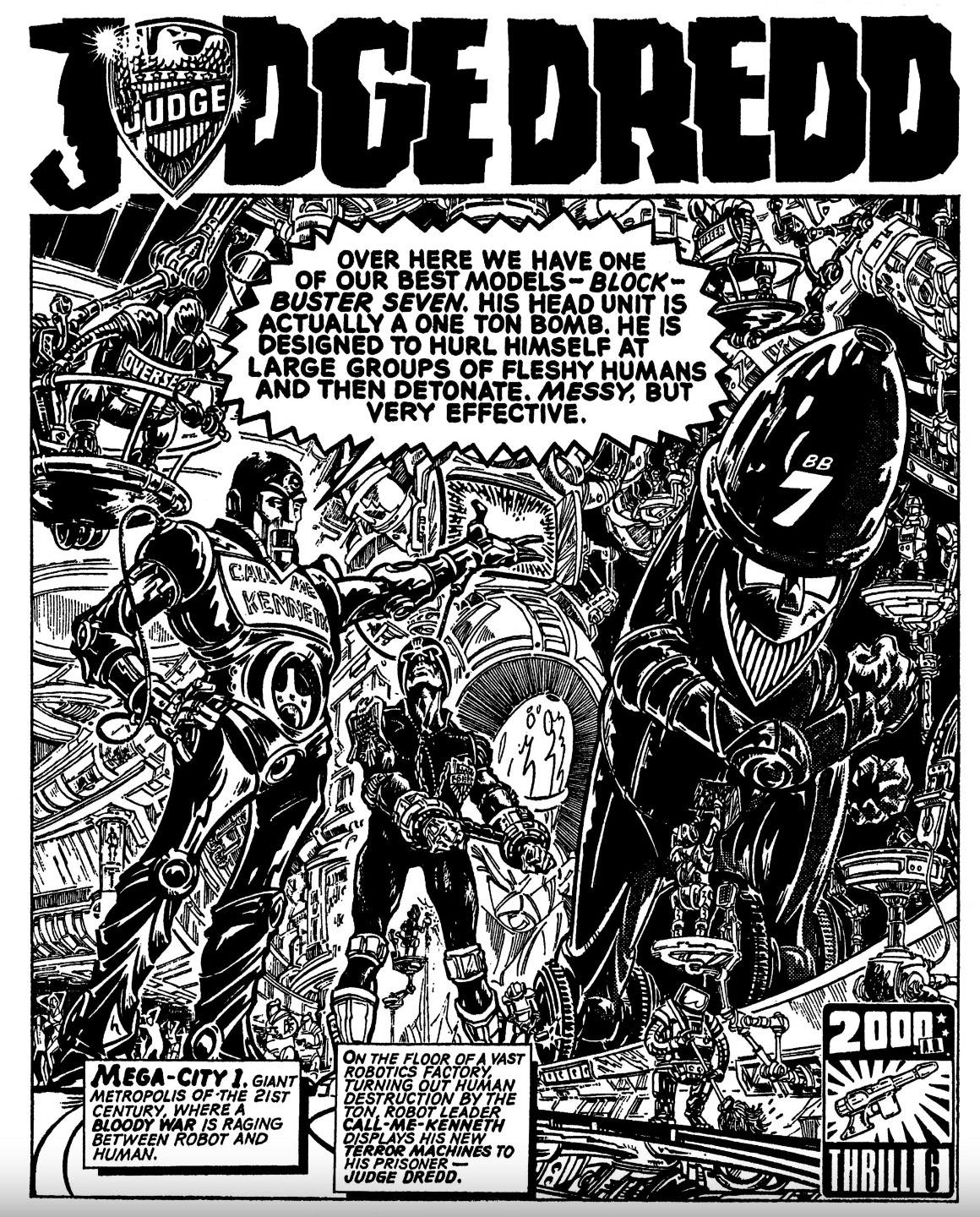
Gibson’s most acclaimed work for 2000 AD began in 1981. The Ballad of Halo Jones, co-created with Alan Moore, was unlike anything the title had published before. While the galaxy’s greatest comic typically focuses on action-packed sci-fi adventure and future war stories, the first volume of Halo Jones was something entirely new. It followed a teenage girl living in the Hoop, a 50th century dumping ground for the poor. Halo dreams of getting out and exploring, but in the first volume that simply involves surviving a perilous shopping trip.
Moore’s scripts for the three volumes of Halo Jones have been rightly praised, but much of what made Halo loveable and her future so vivid and strange, is to do with Gibson’s art. The tone of the book is both fatalist and absurdist, a perfect match for the artist’s hyper-detailed style. But while the worlds around her are manic and intricate, Halo herself is drawn with such personality. Despite the future setting, she looks regular and relatable. She’s young and hopeful in those early issues, but grows visibly wearier as she loses friends, drifts out into deep space and is eventually drafted into being a soldier in a horrifyingly brutal interstellar conflict. Where most artists strive to make battle scenes look exciting – even glamorous – Gibson and Moore consciously portrayed war as the depressing hell that it truly is.
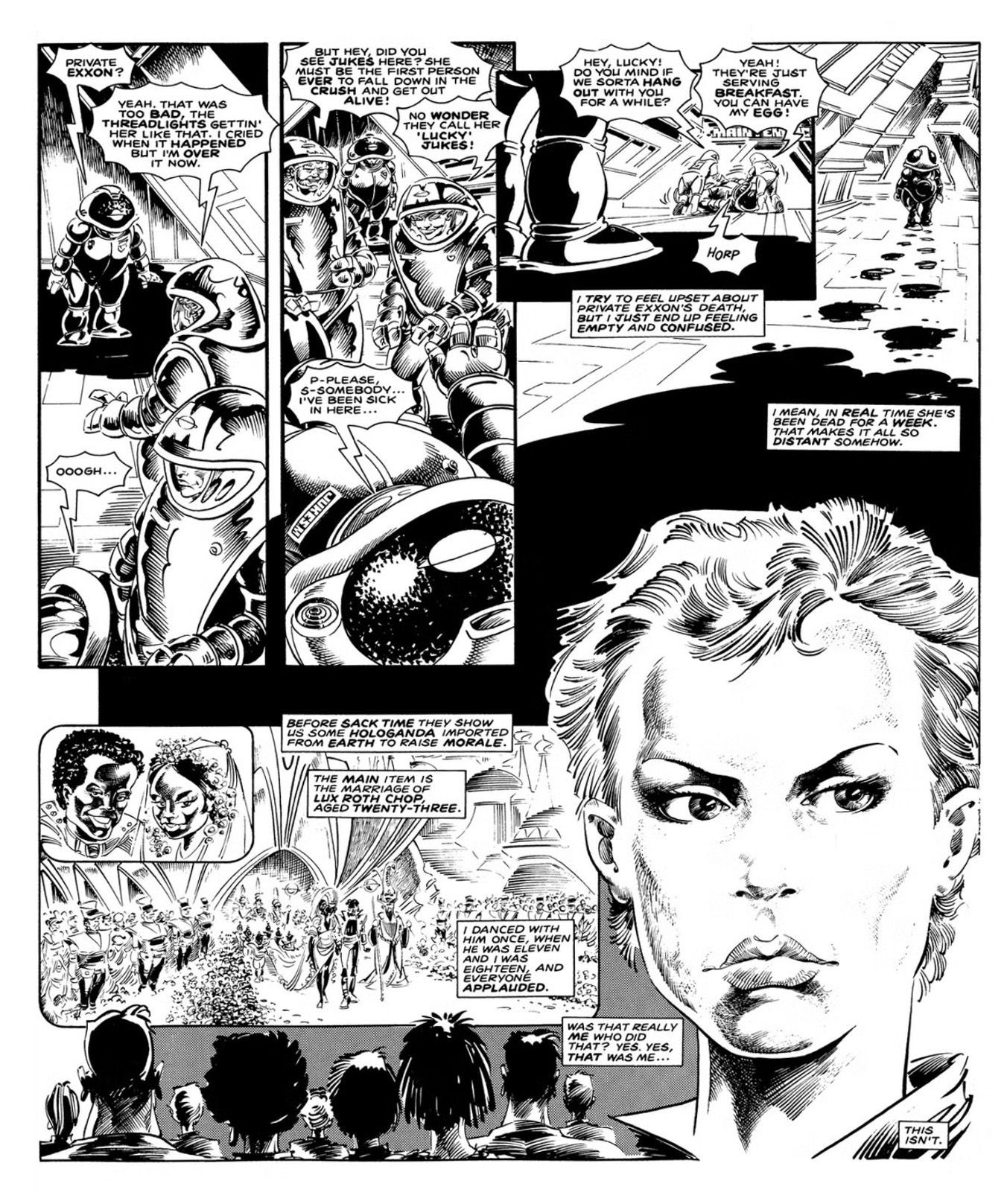
Away from 2000 AD, Gibson worked on Mister Miracle, Green Lantern Corps, and the 1988 Millennium crossover for DC, as well as various Star Wars comics for Dark Horse, including the fan favorite Boba Fett – Enemy of the Empire miniseries. He also designed pre-production visuals for ReBoot, the groundbreaking ’90s CGI-animated TV series.
In his statement about his father’s passing, Luke Gibson said, “He was an amazing father and I will always be proud of him. I will always consider myself blessed to have been his little boy, he really was one of a kind, his generosity knew no bounds and he often gave so selflessly to others. Today the world shines a little less bright, not just for me, but for everyone his beautiful story has touched.” 2000 AD has also released a touching tribute.
Here at Newsarama, we’d like to express our sincere condolences to Ian Gibson’s family, friends, and colleagues, as well as our admiration for a lifetime of incredible work.
These are the best Judge Dredd stories of all time.

